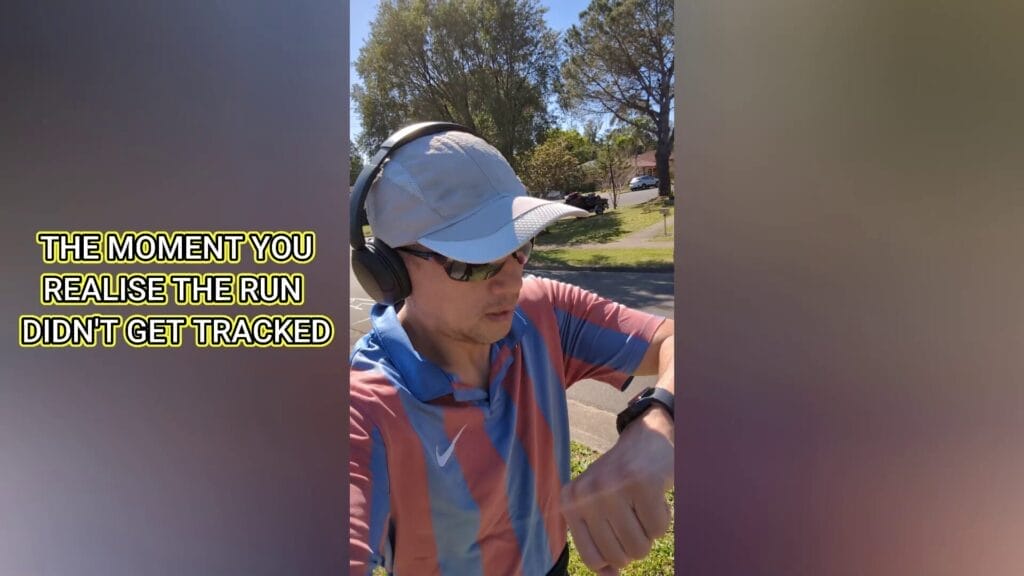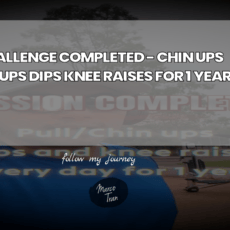As someone who enjoys running, I often find myself pondering the significance of tracking my workouts. Recently, I had a rather frustrating experience where I set out for a five-kilometre run, only to realise that neither my watch nor another device I commonly refer to as “shovel” recorded the session. This prompted me to embark on a second run. I have a strong belief that if an activity isn’t documented, then in some ways, it doesn’t really count. For me, this reflects a broader thought about the essence of tracking our fitness journeys.
The importance of tracking workouts isn’t solely about numbers or distances; it’s tied deeply to motivation and accountability. Studies have shown that people who actively monitor their activities can increase their participation in workouts by as much as 30%. This statistic resonates with me as, in my case, seeing my progress laid out in front of me spurs me on to keep going. It’s more than just a digital metric; it signifies effort, resilience, and growth.

When I hit that ‘start’ button on my Samsung Smartwatch, it feels like I’m making a commitment to myself. Each data point – whether it’s distance, calories burned, or heart rate – becomes a source of validation for the hard work I put in. It confirms that I’m not only investing in my physical health but also engaging in mental exercise, setting goals, and overcoming challenges. Knowing that I’ve completed that five-kilometre run, even if I had to do it twice, reinforces my dedication to my fitness journey.
However, as I reflected on my recent run and the unfortunate tech failure that followed, it struck me how intertwined our fitness routines have become with technology. While it has its benefits, it’s not without its pitfalls. Approximately 68% of runners, according to recent statistics, use some form of tracking technology to log their workouts. Yet, despite its widespread use, user complaints about missed tracking account for almost 25% of fitness app reviews. This phenomenon can be frustrating for many users like myself, who rely on these devices for accurate monitoring.
I’ve had my fair share of experiences where the watch failed to start, or the app crashed midway through a run or sometimes I thought the Samsung app started tracking but it didn’t. It use to happen frequently when it rained and the rain jacket sleeve caused the tracking to stop. I ended up working out that the best way to stop this is to use the water lock feature which is generally used when swimming. Here’s a video on how to use this feature:
It can feel like a betrayal, especially when you’ve poured a lot of effort and sweat into achieving your goals. I often find myself asking: why does this happen? Is it a flaw in the technology, or is there something about the way I’m using it? These moments can lead to feelings of annoyance and even despair, particularly when I’m left with no record of what I’ve accomplished.
Moreover, the psychological impact of not tracking our runs can be significant. When I completed my second five-kilometre run after the tracking mishap, I couldn’t shake the feeling that I was somewhat disconnected from my accomplishment. It’s not just about logging data; it’s about validating my commitment to fitness and health. I have often spoken to fellow runners who share a similar sentiment—there’s a sense of completion in seeing those statistics it makes the effort feel truly legitimate. If a run isn’t logged, did it really happen? This question looms large in the minds of many athletes and fitness enthusiasts especially for someone like me who has a current running streak and my addiction to continue this streak requires some validation and proof.
In discussions with friends, I’ve come to appreciate how important it is for many of us to feel acknowledged, even if it’s by a device. It’s almost like a rite of passage—a marker of achievement. When tracking works, it fosters a sense of community, connection and belonging amongst runners. However, when technology fails, it can create a gap in that connection, leading to feelings of inadequacy or detachment from one’s fitness journey.
As I navigate through various fitness-tracking devices and apps, it’s clear that while they hold great potential for both motivation and performance analytics, there remains a pressing need for accuracy and reliability. If the technology fails to deliver what we expect, it can lead to a psychological dip—a feeling of not meeting our own standards or expectations. The fragility of relying too heavily on technology is something I’m learning to acknowledge as I train and compete.
On some of my long runs I try to use both my Samsung watch and Strava on my mobile phone to track the runs just in case one of the apps fails. Yes, the devices are meant to help and guide our workouts, but they can also send us on a quest for personal validation. It’s crucial for athletes and fitness enthusiasts to remember that while it’s wonderful to validate our efforts through tech, the essence of running and fitness is ultimately about the act itself— the joy, the struggle, the growth. So, whether I have a record of my run or not, the effort I put in remains a testament to my commitment. For now, I’ll continue my journey, embracing both the highs and the lows of the fitness tracking landscape.
In sharing these personal anecdotes and reflections, I hope to open up a dialogue about the importance of tracking in our community and invite everyone to contribute their stories. Now, let’s see how many of you are also secretly resetting your watches for a do-over! Here’s a video of the recent run where I had the issue and wondered whether other people do the same thing – seems like I might be the only one.
“If it didn’t get tracked, did it even happen? – The unspoken motto of every runner!”
The world of running brims with amusing tales that highlight the lighter side of our fitness frustrations. From the technological blunders that lead us to repeat routes to the everyday mishaps that create vibrant, shared stories, these moments serve as reminders of our shared humanity. They also illustrate how embracing our misfortunes can heighten our experiences and build stronger connections between us. So, the next time your workout goes untracked, just laugh it off and remember—you’re not alone in this; we’re all in it together, one funny story at a time.

If this article helped you in any way and you want to show your appreciation, I am more than happy to receive donations through PayPal. This will help me maintain and improve this website so I can help more people out there. Thank you for your help.
HELP OTHERS AND SHARE THIS ARTICLE
LEAVE A COMMENT
I am an entrepreneur based in Sydney Australia. I was born in Vietnam, grew up in Italy and currently residing in Australia. I started my first business venture Advertise Me from a random idea and have never looked back since. My passion is in the digital space, affiliate marketing, fitness and I launched several digital products. You will find these on the portfolio page.
I’ve decided to change from a Vegetarian to a Vegan diet and started a website called Veggie Meals.
I started this blog so I could leave a digital footprint of my random thoughts, ideas and life in general.
If any of the articles helped you in any way, please donate. Thank you for your help.
Affiliate Compensated: there are some articles with links to products or services that I may receive a commission.





